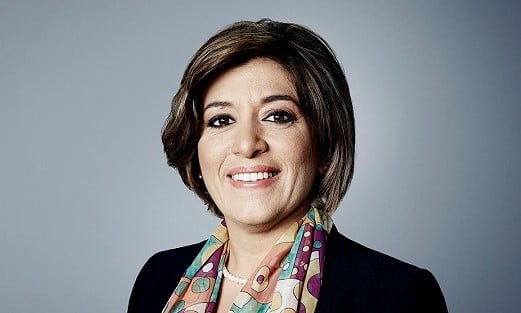Caroline Faraj, Vice President and Editor-in-Chief of CNN Arabic has over 30 years media experience and plays a key role in advocating Arab women’s rights and gender equality in the region.
In 2022 she launched a new page on CNN Arabic called “Hikayatoha” meaning “Her Story” in Arabic which focuses on the untold stories of Arab women and gives women a platform to speak and express their opinions and views.
In an interview with Economy Middle East for the occasion of International Women’s Day, we asked Caroline:
Please tell us about your growth journey as a business professional prior to joining CNN?
Back to my university years, I was the first woman to join and graduate from Journalism among my fellow undergrads in Jordan. After that, I spent over a decade as the palace correspondence in Jordan and had the privilege to tour the world, meet many world leaders, and learn directly from the late King Hussein of Jordan. After the King’s death, I asked myself: what should I do next?
I decided to build my education and I accepted what was then the Chevening scholarship to join City University in London. While doing my MA in International Journalism, I was approached by CNN. This was the beginning of an exciting and fulfilling journey with CNN that started 21 years ago and is still rolling.
All the way along this journey I have always been careful to remind myself of my favorite saying, which is that nothing is impossible. You just need to dedicate yourself to achieving a clear goal. It’s a very simple message, but if you truly believe in yourself and your abilities, you can overcome any challenge that stands in the way of success.
From a personal point of view, perhaps the greatest challenge for me came right at the beginning of my CNN journey: in the space of just 16 days, we not only launched our Arabic site but also our first operation in the Gulf and the fifth operation for CNN in the region at that time. It wasn’t easy, and we had to deal with a lot of surprises, but there were so many memorable moments and I know that every time I look back on that period, I smile.
Read: IWD: Customizing training programs to break barriers to gender diversity, inclusion

Can you describe your growth at CNN and the main role, duties, and responsibilities in your current capacity as Vice President and Editor-in-Chief of CNN Arabic?
Being in the industry for more than three decades, I have witnessed enormous changes in the media landscape, but I’ve also seen how the fundamentals have remained the same. Reporting the truth and keeping the audience at the front of our minds is a simple formula, but it’s the foundation of our work to expand and evolve our portfolio and be the leading digital destination for Arabic speakers around the world.
With my team, our duty is first and foremost to report the facts and get to the truth behind stories, as well as the people at the heart of them. We are trustees of that relationship with the audience, and that is a responsibility we take very seriously.
How do you assess the work culture during your professional career, especially in terms of ease of doing business and personal growth as a woman in this region of the world?
As a woman from the region and living in this region, I’ve seen how increasing access to education has changed the lives of many women – and wider society – for the better. Education has underpinned the success stories of so many modern Arab women, from politics to business to the arts and more. There are so many prominent and influential women shaping society in the Middle East, and that is exciting.
However, there is still progress yet to be made, even as we acknowledge the positive steps that have already been taken. Crucially, we must continue educating Arab women on their rights. There are plenty of opportunities out there for women, but if those women don’t know their rights, they cannot fight for them. As part of this, we have been partnering with entities whose mission is to identify where change needs to be made and using our platform to shed light on those places and raise the voices of the women there.

What types of support do businesswomen need in this region and how are you supporting in these endeavors?
I would say through education and training you can make a difference. Last year, for CNN Arabic’s 20th anniversary, we committed to this by launching an initiative called ‘Her Story’ to support young Arab women. This project takes a holistic approach that starts with offering free storytelling training, followed by wider coaching, and then publishing the stories on our platform.
What goals are you striving for moving forward?
My goal is to continue building our brand and help empower women take themselves another step forward. I want women to think of the gender as an asset, rather than an obstacle.
What brought you to the UAE?
Looking back 21 years, Dubai’s location and infrastructure helped us to decide on it as our destination for CNN Arabic. Since then, the UAE has shown an extraordinary ability to come up with groundbreaking answers to complex problems, such as climate-related issues, and a willingness to change and accommodate different ideas and cultures. That is what keeps me here.
What does IWD mean to you personally?
Celebrating women in my life, as well as the men who have believed in and supported them and me. But, as I often say, the celebration should not only be on the 8th of March but every day!
FOr more on IWD, click here.








